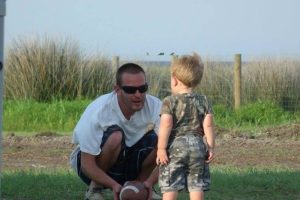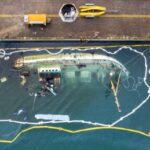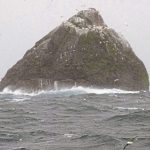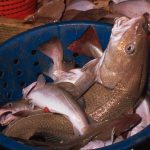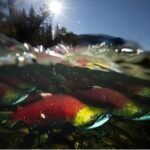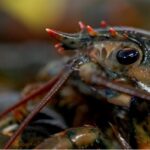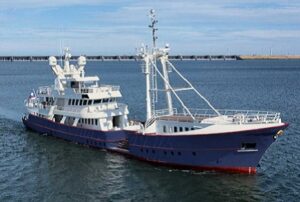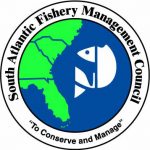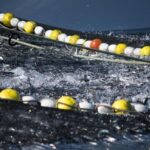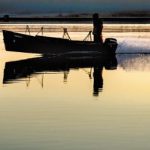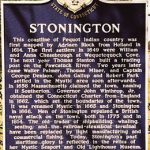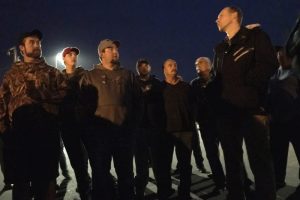Tag Archives: (C-NLOPB)
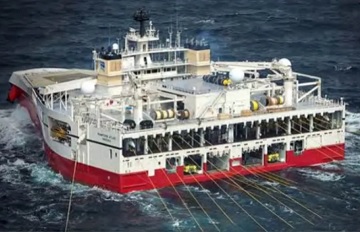
Scientists cast doubt on seismic testing environmental mitigations in N.L.’s offshore
Jack Lawson spent part of this past summer listening for whales around Newfoundland, using recorders moored underwater to track their movements and hear what man-made sounds they may encounter. “All you can hear 24 hours a day, for months on end, every 10 seconds is the boom of a seismic array going off at various distances from our acoustic receivers, and this has made it very hard for us to detect some species, The guns make it hard for Lawson and his team’s recorders, with the technology confusing the pulsing calls of right whales with seismic activity in the distance, DFO scientists thought they’d recorded tens of thousands of instances of right whale calls in the Flemish Pass in 2019, Lawson said. “[But] when we actually went through and manually reviewed these, none of them turned out to be real.” >click to read< 10:41
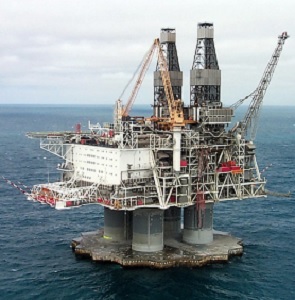
Drilling fluid spill from Hibernia platform shuts down production
Newfoundland and Labrador’s offshore regulatory board is reporting a spill of drilling and production fluid from the Hibernia platform during well operations on Sunday, leading to an immediate shutdown of production. The Canada-Newfoundland and Labrador Offshore Petroleum Board said the spill was reported Monday by the Hibernia Management and Development Company after water sampling indicated an “exceedance of produced water discharge.” Produced water is a mixture of seawater from the reservoir, used in injection, with drilling and production fluids for normal production operations, according to a press release from the C-NLOPB. >click to read< 16:49
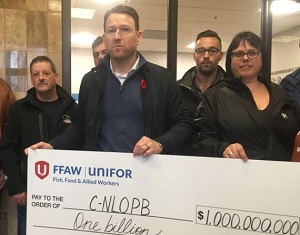
Fisheries union presents giant novelty cheque for $1 billion to C-NLOPB
Days before a C-NLOPB call for bids closes, Newfoundland and Labrador’s largest fisheries union made what president Keith Sullivan called a “last-ditch effort” to stop the process. Sullivan, who leads the Fish Food and Allied Workers, presented an oversized cheque for $1 billion Monday morning at the headquarters of the Canada-Newfoundland and Labrador Offshore Petroleum Board, made out to the board. >click to read< 13:38
FFAW publicity stunt – The Federation of Independent Sea Harvesters of Newfoundland and Labrador (FISH-NL) calls the FFAW-Unifor’s submission of a land bid this morning to protect crab grounds a publicity stunt to deflect attention from the final days of FISH-NL’s membership drive. >click to read<
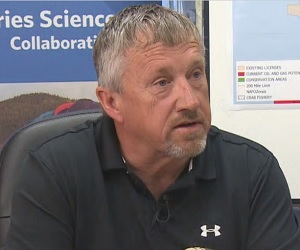
“we’ll go out with our vessels and we’ll get in the way”, FFAW vows to stop oil and gas exploration in crab fishing area
Newfoundland and Labrador’s largest fishermen’s union says oil companies shouldn’t be able to explore in some of the province’s most productive crab fishing areas — and members will stop them if necessary. Last week the C-NLOPB issued a call for nominations, asking oil companies which areas they’d be interested in bidding on. “We are not going to stand by and let someone take our livelihood,” said Fish Food and Allied Workers executive board member Nelson Bussey, who has fished for 43 years, on Thursday. “We’ve put too much into this. It’s our life, it’s our industry and we’re not going to stand by. If we’ve got to do it, we’ll go out with our vessels and we’ll get in the way.” >click to read< 20:36
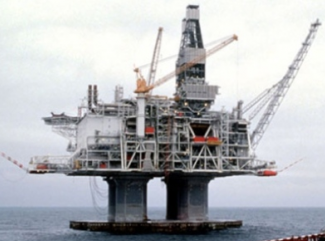
The latest spill: fuel valve to blame for power outage on Hibernia oil platform
A low fuel supply to the equipment that keeps the electricity on is being blamed for causing the power outage that resulted in an estimated 2,200 litres of oil spilling into the Atlantic Ocean from the Hibernia platform over the weekend — just 48 hours after production at the site resumed following an earlier spill. The latest spill happened when the power went out on the oil production platform, prompting the sprinkler system to activate. >click to read< 08:19
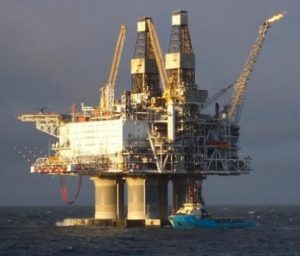
The Hibernia spill – Regulator fumes as Hibernia shutdown costs N.L. $2.5M a day in deferred revenue
Hibernia ceased operations Wednesday after accidentally releasing an estimated 12,000 litres of oil into the Atlantic Ocean from a storage cell containing a combination of crude oil and water.,,, The Hibernia spill comes eight months after an estimated 250,000 litres of oil leaked from a faulty connector in the sprawling network of cables beneath the SeaRose production vessel in the White Rose oil field. >click to read< 10:52
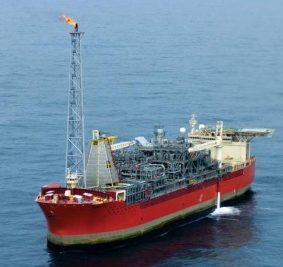
Husky to begin repair work at South White Rose Extension Friday morning
Husky has mobilized resources to the White Rose Field to carry out key integrity work at the South White Rose Extension, it was announced today. The work includes recovering the flowline connector involved in last November’s spill and plugging the open ends of the flowline.,,, Last Nov. 16, 250,000-litres of oil spilled into the ocean after a flowline connector failed near the South White Rose Extension drill centre, about 350 kilometres east of St. John’s. The SeaRose FPSO vessel was attempting to restart oil production after a shutdown due to a storm when the spill occurred. It was the largest oil spill in the province’s history. >click to read<13:47

FISH-NL: C-NLOPB ‘waking up’ to concerns over impact of offshore seismic activity
The Federation of Independent Sea Harvesters of Newfoundland and Labrador (FISH-NL) is frustrated the Canada-Newfoundland and Labrador Offshore Petroleum Board isn’t prepared to suspend offshore seismic work, but encouraged the offshore oil and gas regulator is waking up to concerns. “Ottawa takes a precautionary approach to fisheries management — which means being cautious when science is uncertain — but there’s nothing precautionary about allowing seismic to continue until the potential risks are understood. ,” says Ryan Cleary, President of FISH-NL. “The hypocrisy doesn’t escape inshore harvesters.” >click to read<20:06

FISH-NL renews call for halt to seismic testing – ‘If plankton isn’t protected you might as well say goodbye to the fish’
The Federation of Independent Sea Harvesters of Newfoundland and Labrador (FISH-NL) is once again calling on the Canada/Newfoundland and Labrador Offshore Petroleum Board (C-NLOPB) to suspend offshore seismic work in light of new research that reveals plankton productivity has plunged. The research by the federal Department of Fisheries and Oceans (DFO) doesn’t link the dramatic and persistent drop in plankton to seismic activity, but other research has found the intense acoustic signals may damage the critical elements of the food chain. “It’s highly coincidental that as seismic activity ramped up plankton productivity plunged,” says Ryan Cleary, President of FISH-NL. “Seismic activity may be necessary for offshore oil and gas development, but it must not come at the expense of our wild fisheries and marine ecosystem — cutting off our nose to spite our face.” >click to read<10:43
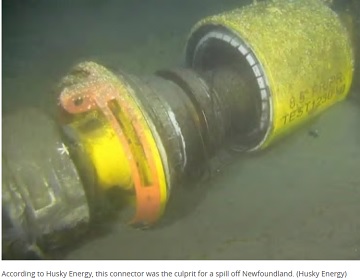
Not Good Enough – Husky ‘deeply sorry’ for oil spill last month off Newfoundland
Husky Energy says it is “deeply sorry” for back-to-back spills that sent a total of 250,000 litres of oil, water and gas into the ocean last month, and says it is making changes to prevent anything similar from happening again. The two spills occurred within an hour of each other on Nov. 16, the oil giant revealed in a statement Monday. Husky’s preliminary investigation is now in the hands of the Canada-Newfoundland and Labrador Offshore Petroleum Board (C-NLOPB), after the company submitted its preliminary report on Friday. The spill happened when a flowline connector failed near the South White Rose Extension drill centre, about 350 kilometres east of St. John’s, according to a media release. >click to read<15:58

Editorial: Too close for comfort
Friday brought what may be the worst oil spill so far in the East Coast offshore. Husky Energy’s SeaRose production vessel spilled as much as 250,000 litres of oil into the ocean on Friday morning. Much of that oil is unlikely to be recovered and has instead been widely dispersed. The SeaRose is the same vessel that failed to follow iceberg protocols in March 2017, and was almost hit by an iceberg. Meanwhile, the Canada-Newfoundland and Labrador Offshore Petroleum Board (C-NLOPB) and the provincial government are still tied up in the usual conundrum. That’s the problem of being oil industry proponents, promoters, owners — and regulators. >click to read<

Offshore oil spill appears to be largest in Newfoundland history, effects still unknown
Officials were trying Monday to determine the impact of Friday’s estimated 250,000-litre oil spill — the largest in Newfoundland and Labrador’s history — in the White Rose offshore oil field. The oil is believed to have spilled from a flowline to the SeaRose floating production storage and offloading vessel (FPSO), which is stationed about 350 kilometres off the east coast of the Avalon Peninsula. If Husky’s estimate of the spill volume — 250 cubic metres, or 250,000 litres — is correct, the Canada-Newfoundland and Labrador Offshore Petroleum Board (C-NLOPB) has confirmed that it is the largest oil spill in the province’s history. >click to read<10:55

FISH-NL accuses FFAW of conflict of interest in accepting funds from offshore oil companies/industry regulator
The Federation of Independent Sea Harvesters of Newfoundland and Labrador (FISH-NL) questions the ability of the FFAW-Unifor to hold the offshore oil industry to account for its impact on the fishery when the industry has been funding the union for years. “The conflict of interest is blatant between the FFAW and oil companies — and the conflict even extends to the C-NLOPB, the industry regulator,” says Ryan Cleary, President of FISH-NL. >click to read<17:41
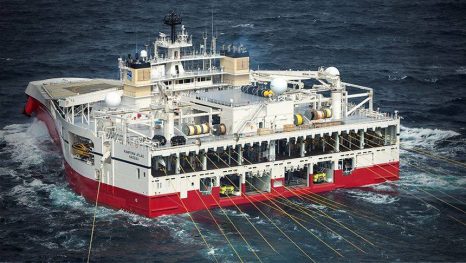
Fisheries groups upset over seismic testing approval, may have ‘incredible impact’ on marine environment
Just a few months after DFO cut crab quotas, now the oil and gas industry may be interfering with the livelihoods of harvesters, according to fisheries unions. The Canada-Newfoundland and Labrador Petroleum Board (C-NLOPB) has approved offshore seismic testing to take place in prime fishing areas on the Grand Banks. The board approved the request from Multi Klient Invest AS (MKI) for three-dimensional seismic testing in two areas from mid-July to mid-October and from mid-July to the end of August. The Fish, Food and Allied Workers Union (FFAW) issued a press release on Friday, calling on the petroleum board to reconsider its decision.,,, Ryan Cleary wrote the C-NLOPB at the end of June, asking to suspend seismic testing in order to study its impact on marine life. click here to read the story 08:50

































